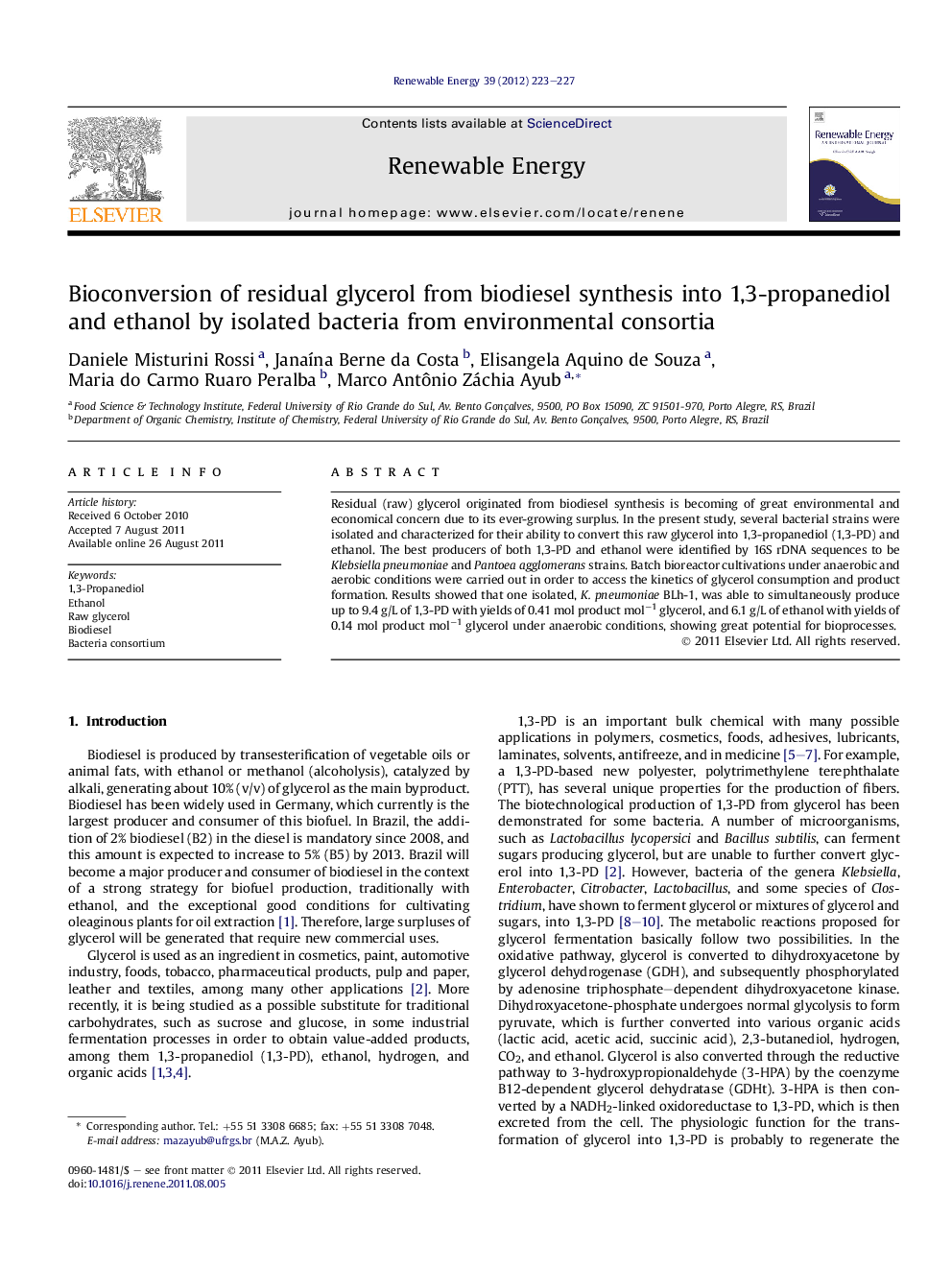| Article ID | Journal | Published Year | Pages | File Type |
|---|---|---|---|---|
| 301241 | Renewable Energy | 2012 | 5 Pages |
Residual (raw) glycerol originated from biodiesel synthesis is becoming of great environmental and economical concern due to its ever-growing surplus. In the present study, several bacterial strains were isolated and characterized for their ability to convert this raw glycerol into 1,3-propanediol (1,3-PD) and ethanol. The best producers of both 1,3-PD and ethanol were identified by 16S rDNA sequences to be Klebsiella pneumoniae and Pantoea agglomerans strains. Batch bioreactor cultivations under anaerobic and aerobic conditions were carried out in order to access the kinetics of glycerol consumption and product formation. Results showed that one isolated, K. pneumoniae BLh-1, was able to simultaneously produce up to 9.4 g/L of 1,3-PD with yields of 0.41 mol product mol−1 glycerol, and 6.1 g/L of ethanol with yields of 0.14 mol product mol−1 glycerol under anaerobic conditions, showing great potential for bioprocesses.
► Residual (raw) glycerol originated from biodiesel synthesis is of great environmental and economical concern. ► Raw glycerol can be used as a substrate for microbial fermentation. ► Bacteria strains were isolated that can efficiently convert this raw glycerol into 1,3-propanediol (1,3-PD) and ethanol.
